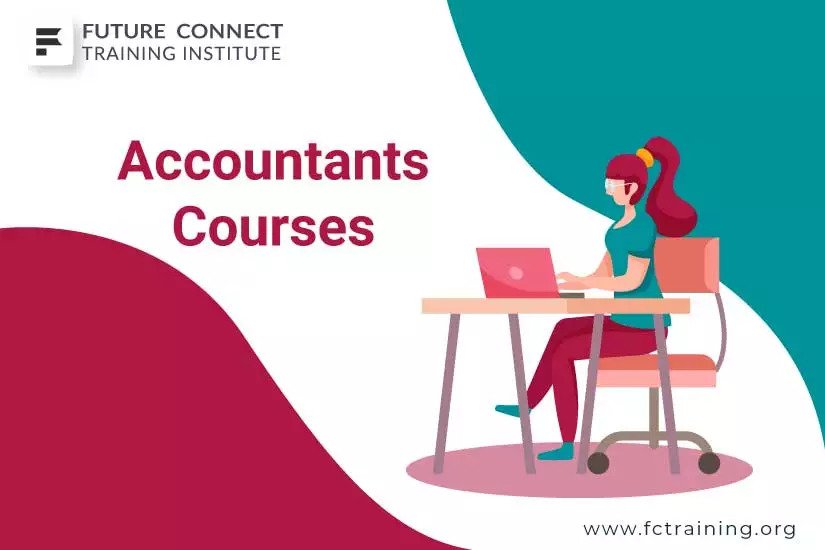Accountants have a bright future with pay far above the national average. You could discover your ideal job in accounting if you love dealing with numbers, solving issues, and organising statements and records.
Accountant, auditor, comptroller, bookkeeper, accounting clerk, and various other accounting roles are available. All of these jobs need a basic set of abilities.
Responsibilities of an Accountant
Accountants help businesses gather, organise, and track financial data. They generate financial reports on revenues, costs, assets, and liabilities for internal use by employees and satisfy the needs of the government, shareholders, and other external organisations.
Accountants undertake audits to see if their clients’ or their own employers’ financial transactions and records are kept following established legal standards and corporate regulations. They compile reports detailing their findings and provide recommendations for resolving issues and reducing the likelihood of litigation and financial losses due to employee mistakes or criminal conduct.
Accountants prepare tax returns to reduce tax liabilities and verify that income is recorded under IRS regulations. They provide advice to clients or management at their business on how to reduce future tax liabilities.
Top Five Accountancy skills
Analytical skill
Accountants must have the ability to read, compare, and analyse numbers and data. Accountants, for example, may examine a client’s finances to reduce their tax burden. Auditors may look at data to see many instances of persons abusing funds. All accounting positions need the ability to interpret numbers and figures in documents.
- Accuracy
- Analysis
- Detail Orientation
- Compliance
- Mathematical
- Ability to work with numbers
Communication/Interpersonal
Accountants must be able to interact with colleagues, clients, and other departments. They may need to communicate in person, by email, or by phone. Accountants are frequently required to deliver presentations. So, they must have exceptional written and spoken communication abilities. They are commonly needed to communicate complicated mathematical concepts straightforwardly and understandably.
- Collections
- Commitment
- Communication
- Personality Qualities
- Motivation
- Multitasking
- Solving Issues
- Teamwork
- Training
- Writing
- Communication in Writing
Focused on the details
Paying attention to the small things is a big part of accounting. Accounting practitioners are frequently confronted with a large amount of data to examine and comprehend. It necessitates meticulous attention to detail.
- Detail Orientation
- Organising your time
Information and Communication Technology
Accounting positions frequently need familiarity with various computer applications and systems. An accountant, for example, may be required to utilise finance-related software systems (such as QuickBooks), a bookkeeper may need advanced Excel abilities, and an auditor may require knowledge of certain data modelling tools.
- IT Expertise
- Microsoft Office
- Software
- Technology
Organisational/Business
Accounting careers need excellent organisational abilities. Accountants, bookkeepers, and other accounting professionals must deal with and maintain a variety of papers for their customers. They must be able to organise these documents and maintain each customer’s data.
- Asset Management is the management of assets.
- Business Intelligence
- Compliance
- Reports on the Company
- Management of Credit
- Finance
- Professionalism
- QuickBooks
- Projects with a Difference
Knowledge of Spreadsheets
Spreadsheets will be an integral part of your daily life no matter what type of accounting you choose, and your ability to produce them quickly and properly will set you apart from other recruits. To fulfil various responsibilities, today’s accountants use several software tools. Spreadsheets are quite widespread, and future accountants should learn how to use Microsoft Excel and other spreadsheet systems. He also urges accounting students to take a Microsoft Excel course and use spreadsheets to manage personal spending or investments in their leisure time.
Collaboration in a Team
Contrary to the popular belief that accountants work alone at a desk, many accounting professionals operate in teams. Accountants may help their company achieve excellent results and set the road for potential growth by engaging in team initiatives and cooperating with colleagues. Working as part of a team and learning from others is essential in the accounting field. Bouncing ideas off one another and thinking them through in a collaborative setting will help you get the greatest results and ensure you’ve evaluated all of your options.
Thinking Critically
Accountants are regularly confronted with errors, inconsistencies, and inaccuracies, which can have major consequences for companies and clients if not recognised and corrected. Accountants must approach situations seriously, considering all variables and potential dangers, to handle these complicated challenges. In accountancy skills, critical thinking is an “invaluable talent.” Much of day-to-day accounting is very straightforward, but accountants who can think through financial strategy and make long-term plans are seen as great assets by their business partners.
Conclusion
Accountants examine and compile financial documents for businesses and individuals. In-demand accountancy skills differ by job title. Certified Public Accountants (CPAs) specialise in tax forms, balance statements, and other financial data that customers must provide. This position requires accuracy, analytic abilities, and a high level of ethical behaviour.
These abilities and extra information about their professional expertise aid other types of accountants. Management accountants, for example, must be well-versed in budgeting and corporate finance. In contrast, government accountants must be well-versed in taxes and financial reporting rules at the federal, state, and municipal levels.



